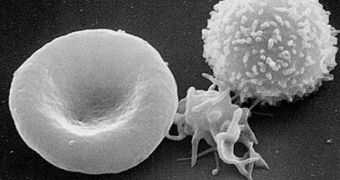A group of scientists in the United States has recently learned that the progression of certain types of cancer can be significantly slowed down if the patients are also administered beta-blocker drugs. These chemicals are usually prescribed to treat high blood pressure.
The correlation the new study provides is very interesting indeed, say researchers from the Ohio State University (OSU) Institute for Behavioral Medicine Research (IBMR) and the Comprehensive Cancer Center (CCC).
Working together with colleagues from the University Hospital in Denmark, the OSU team was able to determine that beta-blockers are not capable of curing the cancers completely. Rather, the drugs simply slow down the disease's evolution by a very wide margin.
This could be just as beneficial for oncologists, since they would then be given more time to apply a number of treatments to patients, until the correct combination of drugs is established. In most cancer types, time is the real enemy doctors have to fight.
For this research, investigators surveyed thousands of entries in the Danish Cancer Registry, and then compiled statistical projections based on the data. The team learned that skin cancer melanoma patients who were on a specific beta-blocker drug exhibited much lower mortality rates.
Details of the study were published in the latest issue of the scientific journal Cancer Epidemiology, Biomarkers & Prevention, Science Blog reports. A clinical trial to test the new discoveries has already been programmed, and the team is eager to start.
If the scientists are successful, then a new complementary treatment method may be developed, to be applied on cancer patients in addition to the more conventional therapies already in use today.
“The work started with some earlier studies where we discovered that certain tumor cells had receptors to two specific catecholamine stress hormones – epinephrine and norepinephrine,” IBMR director and professor of molecular virology, immunology and medical genetics Ron Glaser explains.
“When either of these hormones bind to the tumor cell receptors, it stimulates the production of vascular endothelial growth factor (VEGF), interleukin-8 (IL-8), interleukin-6 (IL-6) and certain matrix metalloproteins – all molecules known to stimulate blood flow to tumors, enhancing their growth, and promoting metastasis.” he concludes.

 14 DAY TRIAL //
14 DAY TRIAL //